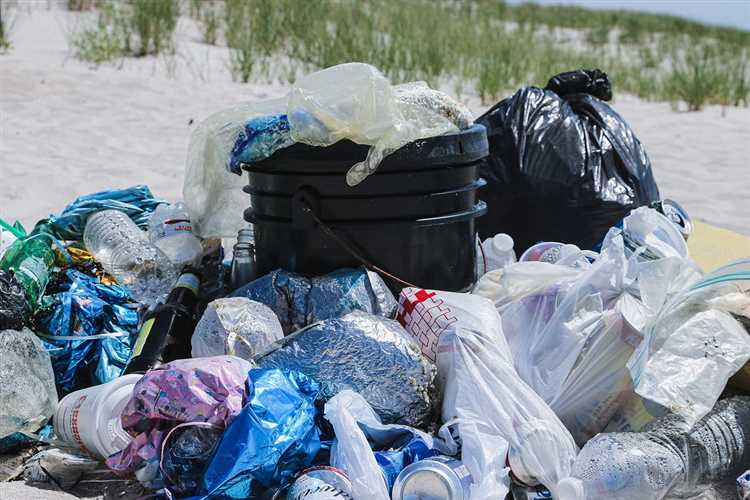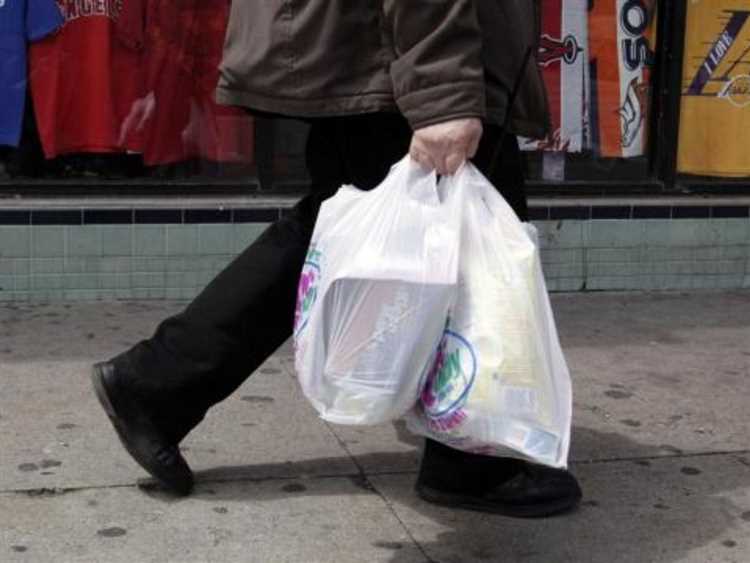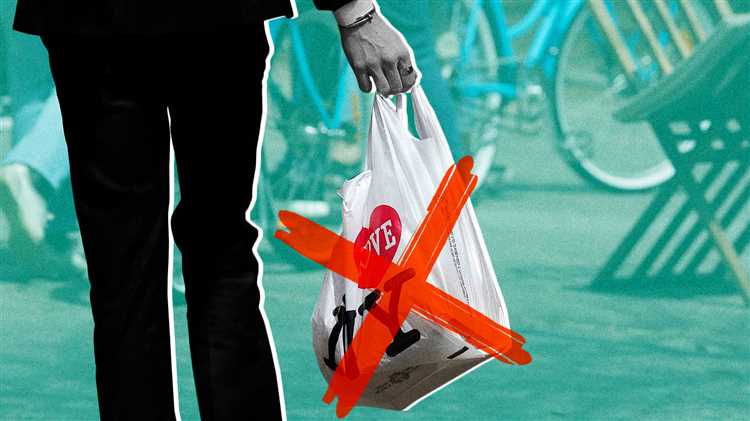Plastic bags have long been a convenience of modern life, but their environmental impact has become increasingly evident. These single-use items take hundreds of years to decompose, and many end up in our oceans, rivers, and landfills, posing a significant threat to wildlife and ecosystems. In recognition of this problem, many governments and communities around the world have implemented plastic bag bans as part of their sustainability efforts.
While the environmental benefits of these bans are clear, it is also important to consider the issue through the lens of environmental justice. Plastic bag usage disproportionately affects low-income communities and communities of color, who often have limited access to quality grocery stores and rely more heavily on convenience stores and fast food restaurants. This means that these communities bear the brunt of the environmental and health impacts of plastic bag pollution.
By implementing plastic bag bans, we not only address the urgent need to reduce plastic pollution, but we also promote environmental justice and equality. These bans encourage people to shift towards reusable bags, which are more sustainable and affordable in the long run. Additionally, they can spur positive changes in consumer behavior and promote a culture of sustainability, where individuals become more conscious of their choices and their impact on the environment.
Furthermore, the benefits of plastic bag bans extend beyond environmental and social factors. By reducing the demand for plastic bags, we also reduce the production of these items, which in turn reduces the reliance on fossil fuels. The production of plastic bags requires significant amounts of petroleum, a non-renewable resource that contributes to climate change. By promoting alternatives to plastic bags, such as reusable bags or biodegradable options, we can contribute to the overall goal of mitigating climate change and creating a more sustainable future for all.
- The Impact of Plastic Bag Ban on Environmental Justice
- Promoting Equitable Access to Sustainable Alternatives
- Reducing Environmental Harm in Vulnerable Communities
- Promoting Sustainability and Equality through Policy Intervention
- The Link Between Plastic Bag Use and Environmental Injustice
- 1. Limited Access to Alternatives
- 2. Disproportionate Waste Disposal Burdens
- Environmental Justice and the Role of Plastic Bag Ban
- The Role of Plastic Bag Ban
- Benefits of Plastic Bag Ban for Environmental Justice
- Question-answer:
- What is the plastic bag ban and why is it important?
- How does the plastic bag ban promote sustainability?
- What is environmental justice?
- How does the plastic bag ban promote environmental justice?
The Impact of Plastic Bag Ban on Environmental Justice

The implementation of a plastic bag ban has far-reaching implications for environmental justice. Environmental justice is the fair treatment and meaningful involvement of all people, regardless of race, color, national origin, or income, in the development, implementation, and enforcement of environmental laws, regulations, and policies. It seeks to ensure that no single community bears the burden of environmental pollution or degradation.
Promoting Equitable Access to Sustainable Alternatives
Plastic bag bans can contribute to the promotion of equitable access to sustainable alternatives. By reducing the availability and use of plastic bags, communities are compelled to explore and adopt more sustainable options such as reusable bags or biodegradable alternatives. However, it is essential to carefully consider the availability and affordability of these alternatives to prevent creating additional barriers for low-income communities. Efforts should be made to ensure that sustainable alternatives are accessible and affordable for all members of society, promoting environmental justice.
Reducing Environmental Harm in Vulnerable Communities

Plastic bags have been found to disproportionately harm low-income and minority communities. These communities are often located near landfills, incinerators, or other sources of pollution and are already facing numerous environmental challenges. Plastic bag bans can help reduce environmental harm in these vulnerable communities by decreasing the amount of plastic waste that ends up in landfills or in nearby waterways, affecting both human health and the ecosystem. By mitigating environmental harm in these communities, plastic bag bans can contribute to a more equitable distribution of environmental benefits and burdens.
Furthermore, the implementation of a plastic bag ban can also bring positive economic benefits to these communities. It can promote job creation and local economic growth through the production and sale of sustainable alternative bags or through the establishment of recycling facilities. These economic opportunities can help uplift disadvantaged communities and promote environmental justice.
In conclusion, plastic bag bans have the potential to positively impact environmental justice by promoting equitable access to sustainable alternatives and reducing environmental harm in vulnerable communities. However, careful consideration and proactive measures are necessary to ensure that these bans do not inadvertently create additional barriers for already marginalized communities.
Promoting Sustainability and Equality through Policy Intervention
In order to address the pressing issues of environmental degradation and social inequality, policy intervention is crucial. By implementing a plastic bag ban, governments can play a significant role in promoting sustainability and equality.
Firstly, the plastic bag ban contributes to environmental sustainability by reducing the consumption and production of single-use plastic bags. These bags are a major source of pollution, littering our oceans, rivers, and landfills. By eliminating their use, governments can mitigate the harm caused to ecosystems and wildlife.
Furthermore, the plastic bag ban promotes social equality by reducing the disproportionate impact of plastic pollution on marginalized communities. Often, these communities are located near waste disposal sites and bear the brunt of environmental degradation. By implementing a ban, governments can ensure a cleaner and healthier environment for all, regardless of socio-economic status.
Additionally, policy intervention in the form of a plastic bag ban creates opportunities for sustainable alternatives. This fosters innovation and economic growth in industries that produce and promote reusable bags, creating job opportunities and supporting local businesses.
It is important to note that policy intervention alone is not enough to achieve sustainability and equality. Public education and awareness campaigns should accompany the plastic bag ban to encourage individuals to adopt more sustainable practices. Collaboration between government, businesses, and communities is also crucial for the successful implementation of the ban.
Overall, policy intervention in the form of a plastic bag ban can serve as a catalyst for promoting both sustainability and equality. By taking action to reduce plastic pollution and its disproportionate impact on marginalized communities, governments can contribute to a more just and environmentally conscious society.
The Link Between Plastic Bag Use and Environmental Injustice
Plastic bag use has become a ubiquitous part of our modern society. These convenient and easily accessible bags have provided a practical solution for carrying groceries, goods, and other items. However, the environmental impact of plastic bag use is undeniable, with plastic pollution now posing a significant threat to ecosystems and human health.
Unfortunately, the burden of plastic bag pollution falls disproportionately on marginalized communities and minority populations, leading to environmental injustice. These communities often lack the resources and political power to combat the negative impacts of plastic bag use, resulting in a cycle of environmental degradation and health risks.
1. Limited Access to Alternatives
One of the reasons for the environmental injustice associated with plastic bag use is the limited access to sustainable alternatives. Wealthier communities are more likely to have access to reusable bags or paper bags, while marginalized communities may rely solely on plastic bags due to their affordability and accessibility.
Without access to these alternatives, these communities are left with no choice but to use plastic bags, exacerbating the environmental impact of their consumption. As a result, the burden of plastic bag pollution is shifted to those who are least equipped to handle it.
2. Disproportionate Waste Disposal Burdens

Another aspect of environmental injustice linked to plastic bag use is the disproportionate waste disposal burdens faced by marginalized communities. Plastic bags are often disposed of improperly, ending up in rivers, oceans, and landfills. These areas are more likely to be located near low-income communities and minority populations.
As plastic bags accumulate in these areas, they pose a threat to the environment and human health. The toxins and chemicals released by plastic bags can contaminate soil, water, and air, leading to a range of health issues for residents. The absence of proper waste management systems in these communities exacerbates the problem, perpetuating the cycle of environmental injustice.
It is crucial to recognize the link between plastic bag use and environmental injustice and take steps towards addressing this issue. By promoting sustainability and equality in the context of plastic bag consumption, we can work towards a more just and environmentally conscious society.
Environmental Justice and the Role of Plastic Bag Ban
Environmental justice is a concept that highlights the equal distribution of environmental benefits and burdens among all people, regardless of their race, income, or socio-economic status. It recognizes the fact that marginalized communities often bear the brunt of environmental degradation and pollution, while having limited access to clean and healthy environments.
The use of plastic bags is a prime example of environmental injustice, as it contributes to various negative impacts on both the environment and human health. Plastic bags are non-biodegradable, taking hundreds of years to break down and often ending up in landfills, polluting the soil and waterways. They also pose a threat to wildlife, with many animals mistaking them for food and choking on them or becoming entangled.
Furthermore, the production and disposal of plastic bags disproportionately affect low-income communities. These communities often lack the resources to mitigate the harmful effects of plastic bags, and may also have limited access to alternative options such as reusable bags. This exacerbates existing inequalities and further marginalizes these communities.
The Role of Plastic Bag Ban

Implementing a plastic bag ban is a crucial step towards promoting environmental justice. By reducing the production and use of plastic bags, we can minimize their negative impacts on both the environment and marginalized communities.
A plastic bag ban encourages the adoption of sustainable alternatives such as reusable bags, which help reduce waste and conserve resources. This not only benefits the environment but also reduces the burden on low-income communities who often bear the cost of plastic bag disposal.
Benefits of Plastic Bag Ban for Environmental Justice

1. Reduced pollution: A plastic bag ban helps prevent plastic bags from polluting landfills, oceans, and other natural habitats, benefiting both the environment and the communities living in proximity to these polluted areas.
2. Resource conservation: By encouraging the use of reusable bags, a ban on plastic bags saves resources and reduces the carbon footprint associated with their production and disposal. This helps mitigate climate change and promotes a more sustainable future for all.
3. Health benefits: Plastic bags pose health risks, as they can release harmful chemicals when they degrade. By eliminating their use, we can reduce the exposure of marginalized communities to these toxic substances and improve overall public health.
In conclusion, a plastic bag ban plays a crucial role in promoting environmental justice. It helps address the unequal distribution of environmental benefits and burdens, while also offering numerous benefits for the environment, public health, and marginalized communities. By implementing plastic bag bans, we can move closer towards a more sustainable and equitable society.
Question-answer:
What is the plastic bag ban and why is it important?
The plastic bag ban is a regulatory measure that prohibits the use of single-use plastic bags in specific locations or across an entire region. It is important because plastic bags have a significant negative impact on the environment, contributing to pollution and harm to wildlife.
How does the plastic bag ban promote sustainability?
The plastic bag ban promotes sustainability by reducing the consumption of single-use plastic bags, which take hundreds of years to decompose. By encouraging the use of reusable bags, the ban helps to conserve resources and decrease waste in landfills.
What is environmental justice?
Environmental justice is the fair and equitable distribution of environmental benefits and burdens among communities. It ensures that all individuals, regardless of their race, income, or location, have equal access to a safe and healthy environment.
How does the plastic bag ban promote environmental justice?
The plastic bag ban promotes environmental justice by reducing the disproportionate burden placed on low-income communities and communities of color. These communities are often located near landfills and incinerators, and are more likely to suffer from pollution and health issues. By eliminating plastic bags, the ban helps to address these environmental inequalities.